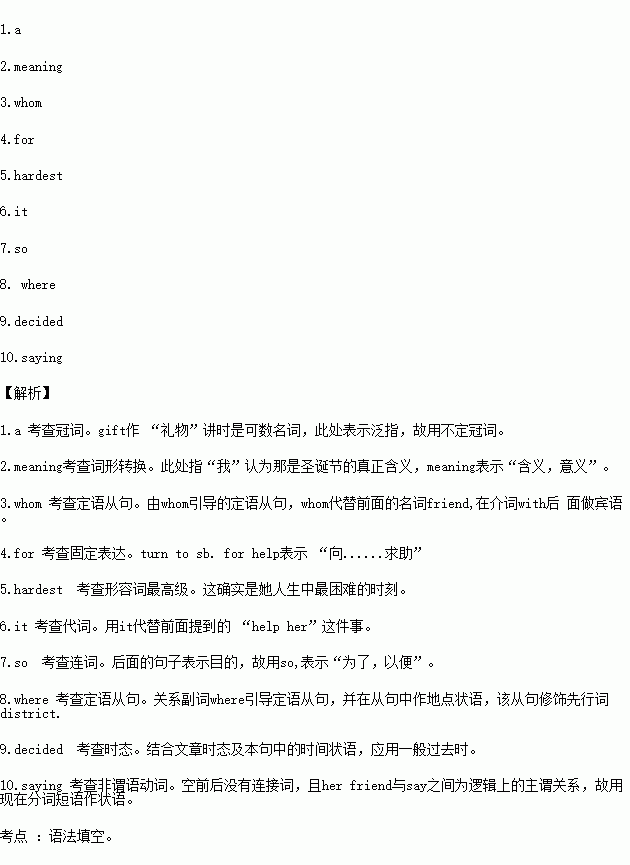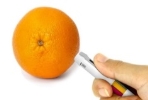题目内容
阅读下面材料,在空白处填入适当的内容(不多于3个单词)或括号内单词的正确形式。
I think Christmas is a perfect time to show our kindness. Every year at Christmas my wife and I send 1. gift to someone anonymously (匿名地). I feel that’s the true 2. (mean) of Christmas---it is about giving rather than receiving.
My wife had a close friend with 3. she had grown up. One year, just before Christmas, she lost her job. She had almost no savings and no one to turn to 4. help and she had two young children. It was really the 5. (hard) time in her life. I told my wife we should help her but we should do 6. anonymously.
We purchased a lot of necessities (必需品) she would need from the supermarket and mailed them to her with no mailing address. We had a friend address the package 7. she couldn’t recognize the handwriting. Besides, the package was mailed from a district 8. we didn’t live. Four years later, also at Christmas time, my wife 9. (decide) to tell her whom the package was from. When she did, her friend just smiled, 10. (say) that from that Christmas on she had been helping others who were in need every Christmas.


